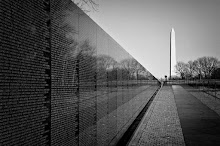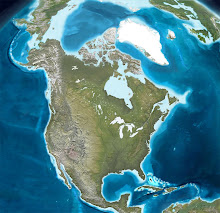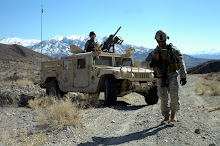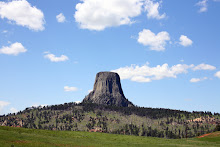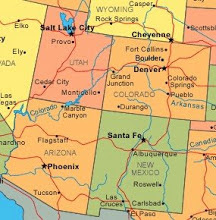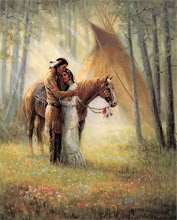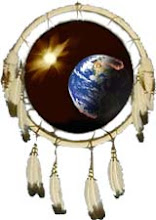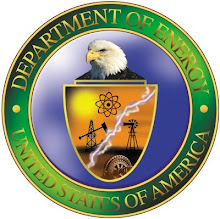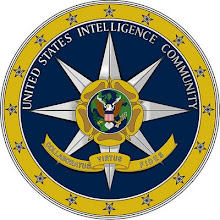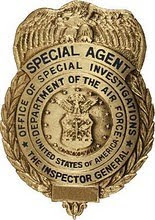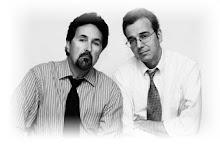By Steve Hammons
In response to a national discussion about the history of the Cherokees and the intermixing of Cherokee with European-Americans (notably Anglo, Scottish and Scots-Irish in the 1700s), the secretary of state of one of the three federally-recognized Cherokee groups issued a public formal statement.
In his statement, Chuck Hoskin, Jr. made some accurate and helpful points. However, a closer look at his comments might provide insight.
Here is Hoskin’s complete statement, with my paragraph breaks for analysis:
"A DNA test is useless to determine tribal citizenship. Current DNA tests do not even distinguish whether a person's ancestors were indigenous to North or South America.”
“Sovereign tribal nations set their own legal requirements for citizenship, and while DNA tests can be used to determine lineage, such as paternity to an individual, it is not evidence for tribal affiliation.”
“Using a DNA test to lay claim to any connection to the Cherokee Nation or any tribal nation, even vaguely, is inappropriate and wrong. It makes a mockery out of DNA tests and its legitimate uses while also dishonoring legitimate tribal governments and their citizens, whose ancestors are well documented and whose heritage is proven.”
“Senator Warren is undermining tribal interests with her continued claims of tribal heritage."
BREAKING IT DOWN
Let’s take a look at Hoskin’s points one at a time:
- "A DNA test is useless to determine tribal citizenship. Current DNA tests do not even distinguish whether a person's ancestors were indigenous to North or South America.”
Some tribes determine membership by “blood quantum,” percentage of Native heritage and some, like the Cherokee, use historical census rolls. Hoskin is correct that DNA tests are not used to determine legal membership in federally-recognized Native tribes and groups.
However, Sen. Elizabeth Warren, to whom Hoskin was directing his comments, never indicated she felt she was eligible for official tribal membership. She states this was just something passed down in her family that she and other family members found worthwhile.
[Update: According to news reports, Warren identified herself as "American Indian" on a Texas Bar Association document.]
- “Sovereign tribal nations set their own legal requirements for citizenship, and while DNA tests can be used to determine lineage, such as paternity to an individual, it is not evidence for tribal affiliation.”
That is also true. Native tribes and groups set their own rules for who is in and who is out for official membership. Tribal governments as well as the U.S. government and various lawsuits also have been part of determining criteria for membership in various tribes. As noted, these criteria vary among tribes, and have changed and morphed over the years.
- “Using a DNA test to lay claim to any connection to the Cherokee Nation or any tribal nation, even vaguely, is inappropriate and wrong. It makes a mockery out of DNA tests and its legitimate uses while also dishonoring legitimate tribal governments and their citizens, whose ancestors are well documented and whose heritage is proven.”
Many Americans who suspect Cherokee or other Native American background in their family trees may disagree with Hoskin when he says it is “inappropriate and wrong” for any Americans to use a DNA test to research these issues.
Is it also wrong to study our ancestry and geneaology using public records and other research? Is Hoskin saying that if we conduct such research and it happens to confirm or discover "any connection to the Cherokee Nation or any tribal nation, even vaguely" that this is also "inappropriate and wrong," as Hoskins states?
What about research and DNA tests about our other ethnic and ancestral backgrounds from around the world?
It seems unclear why Hoskin states that Americans interested in their heritage who take a DNA test are “making a mockery out of DNA tests,” and “dishonoring legitimate tribal governments and their citizens, whose ancestors are well documented and whose heritage is proven.”
Again, if we do family history research other than DNA tests, is that also "dishonoring legitimate tribal governments and their citizens, whose ancestors are well documented and whose heritage is proven," as Hoskins states?
- “Senator Warren is undermining tribal interests with her continued claims of tribal heritage."
Like tens of thousands of Americans, Warren heard family stories of Cherokee background in the family tree. She valued this possible background, like many people. How this is “undermining tribal interests” also seems unclear.
FULL-BLOOD CLUB
In recent years, sometimes with a valid basis, Americans of various ethnicity have looked into Native American heritage in their family backgrounds.
Full-blood and other Native Americans sometimes say these are white “wannabe Indians” who are “appropriating” or "hijacking" Native cultures.
What exactly gives these “official Indians” the right to tell Americans who may very well have Cherokee and other native DNA within them that they have no right to explore and embrace this genetic background within themselves, their families and their ancestors?
The truth is that many members of the three U.S. government-recognized Cherokee groups have mixed-ethnicity of Cherokee and white, often Scots-Irish.
Does a person whose parents were both full Cherokee have more rights and insights than people whose Cherokee lineage is from a great-great-grandmother or a great-great-great-great-grandfather?
The science of DNA has its mysteries and is not fully understood. It apparently does not does not work like a math problem. Biological and other traits we may have inherited from our ancestors do not necessarily work according to mathematical formulas and fractions.
Culturally and socially speaking, of course people raised on reservations and Native nation lands have grown up immersed in Native culture. That goes without saying. And many have also lived the related collective trauma, difficulties and viewpoints.
They've also experienced the sometimes convoluted and questionable politics of Native tribes and leaders over the years – including the significant infighting and fracturing of the Cherokee culture over the decades and centuries.
Does Hoskin have the right to tell millions of Americans with Cherokee ethnic background that they don’t make the grade to join his organization? Yes.
Does he also have the have the right to tell them that they are not worthy of exploring and embracing their Native heritage?
(If you liked this article, please see my other recent ones about the Cherokee on the Joint Recon Study Group and Transcendent TV & Media blogs.)
skip to main |
skip to sidebar

In the past 30 days, readers from approximately 40 countries or territories using about 20 languages visited the Joint Recon Study Group site.

To see more articles, scroll down the right-side column.

Steve Hammons

Articles from the Joint Recon Study Group site and Transcendent TV & Media site are included.
The Joint Reconnaissance Study Group is the San Diego-based, combined-service/agency, research-and-activities team in my novels "Mission Into Light" and sequel "Light's Hand." This site contains information of interest to the JRSG.
Home page: Joint Recon Study Group site
Readers from around the world visit this site.

In the past 30 days, readers from approximately 40 countries or territories using about 20 languages visited the Joint Recon Study Group site.
April 2021 threat alert: ‘Force protection’ for our troops now the responsibility of all Americans
First responders must deal with society’s problems, shortcomings, injustices every day
Could some UFOs be linked to Native American 'white stone canoe' legends, stories?
Wildland firefighter basic training available at community colleges, tech schools, training centers
‘Boomer remover’ coronavirus is bigger threat to WWII generation that saved the world
‘Black swan’ events that aren’t: Coronavirus, climate emergency, unidentified aerial phenonema
Reagan’s complete 1987 UN message on ‘alien threat’ overlooked: Grave danger here, now
Was Reagan briefed about UFOs and original ‘Day the Earth Stood Still’ movie?
My military draft lottery number was #165 during final Vietnam War years
“Keep On The Sunny Side,” by The Whites, from movie O Brother, Where Art Thou?”
Living along Ohio River for centuries, Native Shawnee called it ‘Kiskepila Sepe’ – ‘Eagle River’
Native American words around us: States, towns, rivers, lakes, terrain, plants, animals, military
Athens County, Ohio, was key spot when colonists, Redcoats fought Shawnee in 1774 battle
1787 Northwest Ordinance set course for Ohio, Indiana, Illinois, Michigan, Wisconsin, Minnesota
Smallpox-tainted blankets were 1763 bioweapon on northern Appalachian Mountains frontier
Diana Krall performs “Maybe You’ll Be There" live in Paris with Paris Symphony Orchestra 2001.
Books to read in 2021? Novels "Mission Into Light" and the sequel "Light's Hand"
Novel excerpt: Renew, prepare America with ‘Urgent Response Group’ for teens, young adults
Diana Krall performs “I Get Along” live in Paris with Paris Symphony Orchestra 2001.
Steve Tyrell sings “Give Me the Simple Life.”
Diana Krall performs “Love Letters” live in Paris with Paris Symphony Orchestra 2001.
Visit the article archives!

To see more articles, scroll down the right-side column.
Novel "Mission Into Light" overview on Amazon
Novel "Light's Hand" overview on Amazon
Adventures of the Joint Recon Study Group: Overview and synopses of activities and operations
Key chapter overviews: Points of interest in the novel "Mission Into Light"
Key chapter overviews: Points of interest in the novel "Light's Hand"
Multimedia rights available
English and foreign-language book rights, audio book and e-book rights for "Mission Into Light" and "Light's Hand" are available. Movie and TV rights are available.
I'm seeking agent representation for these works and rights.
Please contact Steve Hammons for more information at hammons55@gmail.com.
Feature film screenplay
I completed a feature film screenplay in 2006 based on “Mission Into Light” and “Light’s Hand” combining key elements of both novels.
The screenplay takes audiences into the adventures and discoveries of the Joint Recon Study Group and the relationships among team members, friends and associates as they explore leading-edge research and emerging transcendent developments.
I'm seeking agent representation for this screenplay.
.........................
I also wrote a TV series pilot script based on "Mission Into Light" and "Light's Hand" story. I'm seeking agent representation this script.
About the Author

Steve Hammons
About the Author
I was born and raised in southwestern Ohio near the Kentucky and Indiana borders, then went to college at Ohio University in the southeastern Appalachian region of the state near West Virginia.
I graduated with a dual major in communication (journalism focus) and health education (psychology focus) with a minor in pre-law.
Ohio U. is home to the respected Scripps College of Communication and E.W. Scripps School of Journalism.
I also completed two graduate-level courses in guidance counseling theory and method at Ohio U.'s College of Education, School of Applied Behavioral Sciences and Educational Leadership.
At the end of my undergraduate education at Ohio University, I moved to the beautiful American Southwest where I applied my education, continual training and and ongoing experience to related professional fields such as health care, journalism and special research areas.
My novels "Mission Into Light" and the sequel "Light’s Hand" are available in e-book and 6"x9" paperback from most online booksellers worldwide.
Readers review metaphysical-military-intelligence adventure novel ‘Mission Into Light’
My articles on DoD CultureReady blog, Defense Language and National Security Education Office
Transcendent TV & Media site
Past articles: Scroll down the right-side column for more articles.

Articles from the Joint Recon Study Group site and Transcendent TV & Media site are included.











